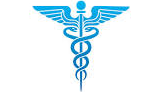Educating Prospective Secondary Mathematics Teachers
 -15%
portes grátis
-15%
portes grátis
Educating Prospective Secondary Mathematics Teachers
Knowledge, Identity, and Pedagogical Practices
Potari, Despina; Strutchens, Marilyn E.; Losano, Leticia; Huang, Rongjin
Springer International Publishing AG
06/2018
328
Dura
Inglês
9783319910581
15 a 20 dias
4997
Descrição não disponível.
Introduction.- Section I. Field Experience.- The Structure of Student Teaching Can Change the Focus to Students' Mathematical Thinking.- Transforming Secondary Mathematics Teacher Preparation Via a Networked Improvement Community: Focus on Clinical Experiences .- Pre-Service Teachers' Reflections on Their Teaching.- Gaining Valuable Field Experience Through the Use of Informal Learning Environments.- Diagnosis-based Adaptations of Mathematics Lessons.- Section II. Use of Technologies and Tools.- Contemporary Framing of Technology in Mathematics Teaching.- Prospective Mathematics Teachers' Perspectives on Technology.- Preservice Mathematics Teachers' Effective Use of Technology: Analyzing the Cognitive Demands of Technology-Based Instructional Activities .- Section III. Mathematics for Teaching .- Prospective Mathematics Teacher Argumentation While Interpreting Classroom Incidents. .- Designing a Competence-based Entry Course for Prospective Secondary Mathematics Teachers.- Nurturing Knowledge of Mathematical Modeling for Teaching.- Future Teachers' Use of Multiplication and Fractions When Expressing Proportional Relationships.- Marking Mathematics Exams as a Tool for Secondary Teacher Training.- Section IV. Professional Identity and Disposition .- Prospective Mathematics Teachers' Professional Identity.- Exploring Pre-service Teachers' Self-perceptions of Mathematical Knowledge for Teaching.- Exploring the Initial Convictions and Mindset of Prospective Mathematics Teachers Towards Modelling.- Conclusion.
Este título pertence ao(s) assunto(s) indicados(s). Para ver outros títulos clique no assunto desejado.
Prospective Secondary Mathematics teachers;Secondary Preservice teachers;field experiences in Mathematics;Mathematics teacher education;Technological Pedagogical knowledge;Prospective mathematics teacher;mathematical knowledge for teaching;Prospective mathematics educators;Mathematical Modeling for teaching;Proportional relationships;Students' mathematical thinking;Informal learning environments;Preservice mathematics teacher;Technology-based instructional activities;learning and instruction
Introduction.- Section I. Field Experience.- The Structure of Student Teaching Can Change the Focus to Students' Mathematical Thinking.- Transforming Secondary Mathematics Teacher Preparation Via a Networked Improvement Community: Focus on Clinical Experiences .- Pre-Service Teachers' Reflections on Their Teaching.- Gaining Valuable Field Experience Through the Use of Informal Learning Environments.- Diagnosis-based Adaptations of Mathematics Lessons.- Section II. Use of Technologies and Tools.- Contemporary Framing of Technology in Mathematics Teaching.- Prospective Mathematics Teachers' Perspectives on Technology.- Preservice Mathematics Teachers' Effective Use of Technology: Analyzing the Cognitive Demands of Technology-Based Instructional Activities .- Section III. Mathematics for Teaching .- Prospective Mathematics Teacher Argumentation While Interpreting Classroom Incidents. .- Designing a Competence-based Entry Course for Prospective Secondary Mathematics Teachers.- Nurturing Knowledge of Mathematical Modeling for Teaching.- Future Teachers' Use of Multiplication and Fractions When Expressing Proportional Relationships.- Marking Mathematics Exams as a Tool for Secondary Teacher Training.- Section IV. Professional Identity and Disposition .- Prospective Mathematics Teachers' Professional Identity.- Exploring Pre-service Teachers' Self-perceptions of Mathematical Knowledge for Teaching.- Exploring the Initial Convictions and Mindset of Prospective Mathematics Teachers Towards Modelling.- Conclusion.
Este título pertence ao(s) assunto(s) indicados(s). Para ver outros títulos clique no assunto desejado.
Prospective Secondary Mathematics teachers;Secondary Preservice teachers;field experiences in Mathematics;Mathematics teacher education;Technological Pedagogical knowledge;Prospective mathematics teacher;mathematical knowledge for teaching;Prospective mathematics educators;Mathematical Modeling for teaching;Proportional relationships;Students' mathematical thinking;Informal learning environments;Preservice mathematics teacher;Technology-based instructional activities;learning and instruction






